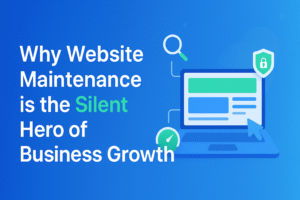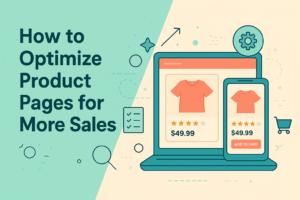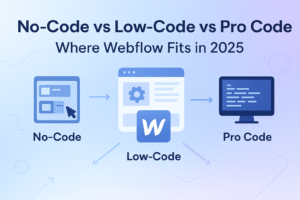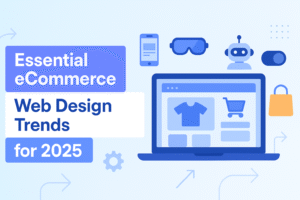Introduction how to choose the right E-commerce platform:
Selecting the right e-commerce platform is a critical decision for any business aiming to establish or enhance its online presence. In today’s digital landscape, where consumers increasingly prefer the convenience of online shopping, choosing the optimal platform can significantly impact your business’s success. With a myriad of options available, ranging from user-friendly solutions for startups to robust platforms tailored for enterprise-level operations, the selection process can seem daunting.
However, by carefully evaluating your business requirements, budget constraints, technical capabilities, and growth projections, you can navigate this decision-making process with confidence. This guide aims to provide you with a comprehensive overview of the key factors to consider when choosing an e-commerce platform, empowering you to make an informed decision that aligns with your business objectives and sets the foundation for long-term success.
Choosing the right e-commerce platform for your business is crucial for its success. There are several factors to consider when making this decision, including your business needs, budget, technical expertise, scalability, and customization requirements. Here’s a breakdown of these factors and some popular e-commerce platforms:
Business Needs:
Understand your business requirements thoroughly. Consider factors such as the type and volume of products you sell, the target audience, desired features (e.g., inventory management, SEO tools, mobile responsiveness), and integration with other software (e.g., accounting, CRM).
Budget:
E-commerce platforms come with varying pricing structures, including monthly subscriptions, transaction fees, and additional costs for add-ons and customization. Determine your budget constraints and choose a platform that offers the best value for your money.
Technical Expertise:
Consider your team’s technical skills. Some platforms are more user-friendly and require minimal technical expertise to set up and maintain, while others may require coding knowledge for customization and advanced features.
Scalability:
Select a platform that expands your business. Consider your expansion plans and ensure that the platform can handle increased traffic, sales volume, and additional features as your business evolves.
Customization:
Determine the level of customization you need for your online store. Some platforms offer extensive customization options, allowing you to tailor the design and functionality to match your brand identity and unique requirements.
Now, Let’s Explore Some Popular E-Commerce Platforms:
Certainly! Exploring popular e-commerce platforms reveals a diverse landscape catering to businesses of all sizes and needs.
Shopify:
Shopify is one of the most popular e-commerce platforms, known for its user-friendly interface and extensive app store. It offers a range of pricing plans to suit different business needs and scales well from small startups to large enterprises. Shopify provides various built-in features like inventory management, payment gateways, and marketing tools.
WooCommerce:
WooCommerce is a plugin for WordPress, making it an ideal choice for businesses already using WordPress for their websites. It’s highly customizable, offering a wide range of themes and plugins to extend functionality. WooCommerce is free to use, but you’ll need to pay for hosting and any premium extensions you require.
Magento:
Magento is a powerful open-source e-commerce platform that is highly customizable and scalable, making it suitable for large businesses with complex needs. It offers a rich set of features out of the box and supports third-party integrations for additional functionality. However, setting up and maintaining Magento needs technical know-how.
BigCommerce:
BigCommerce is a cloud-based e-commerce platform that offers a good balance between ease of use and flexibility. It comes with built-in features like hosting, security, and marketing tools, making it suitable for businesses of all sizes. BigCommerce also offers excellent scalability and customization options.
Wix:
Wix is a website builder that includes e-commerce functionality, making it suitable for small businesses and individuals looking for an all-in-one solution. It has a drag-and-drop interface for simple customization and a selection of templates. Wix is user-friendly but may need more advanced features compared to other platforms.
Ultimately, the right e-commerce platform for your business will depend on your specific needs, budget, and technical requirements. Take the time to research and compare different platforms before deciding, and consider factors such as features, pricing, scalability, and ease of use.
Conclusion:
Whether you opt for a user-friendly solution like Shopify, a customizable platform like WooCommerce, or a robust enterprise-level system like Magento, the key is to select a platform that aligns meet your present requirements while allowing for potential expansion. Additionally, don’t hesitate to leverage trial periods, demos, and consultations with platform providers to gain firsthand experience and insights into each platform’s capabilities.
Remember that the e-commerce landscape is constantly evolving, so staying flexible and open to adapting your chosen platform as your business evolves is essential. Regularly reassess your needs, explore new features and integrations, and seek feedback from customers to ensure that your e-commerce platform continues to support your business objectives effectively. Ultimately, by investing time and effort into the selection process and choosing a platform that empowers you to deliver exceptional shopping experiences, you can position your business for sustained growth and success in the competitive online marketplace.











